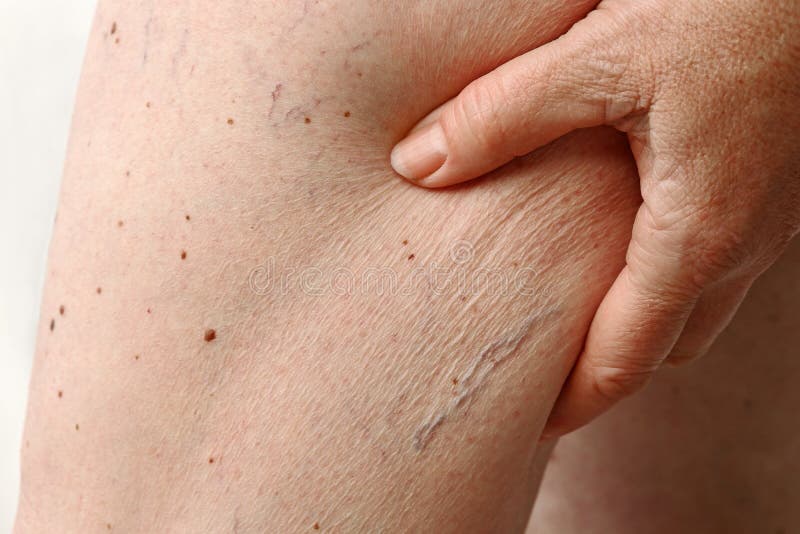Varicose veins, characterized by swollen, twisted veins visible just beneath the skin’s surface, are a common concern among individuals in Abu Dhabi. These veins often appear on the legs and can cause discomfort, heaviness, and self-consciousness. Fortunately, advancements in medical technology, such as sclerotherapy in Abu Dhabi, have led to the development of non-invasive treatments that effectively address varicose veins without the need for traditional surgery.
Understanding Varicose Veins
Varicose veins occur when the valves within the veins become weakened or damaged, leading to improper blood flow. This results in blood pooling in the veins, causing them to enlarge and become visible. Factors such as genetics, prolonged standing, pregnancy, and aging can contribute to the development of varicose veins.
Non-Invasive Treatment Options
Sclerotherapy
Sclerotherapy is a widely used non-invasive procedure for treating varicose veins. During this treatment, a specialized solution is injected directly into the affected veins. The solution irritates the vein lining, causing it to collapse and eventually fade from view. Sclerotherapy is particularly effective for smaller varicose veins and spider veins. The procedure is relatively quick, with minimal discomfort, and patients can resume normal activities shortly after treatment.
Endovenous Laser Therapy (EVLT)
Endovenous Laser Therapy (EVLT) is a minimally invasive procedure that utilizes laser energy to treat varicose veins. A laser fiber is inserted into the affected vein through a small incision. The laser energy heats the vein, causing it to collapse and seal shut. Over time, the body naturally absorbs the treated vein. EVLT is effective for larger varicose veins and offers a quick recovery time with minimal scarring.
Radiofrequency Ablation (RFA)
Radiofrequency Ablation (RFA) is another minimally invasive technique used to treat varicose veins. Similar to EVLT, RFA involves inserting a catheter into the affected vein. Radiofrequency energy is then applied to heat and close the vein. RFA is known for its precision and effectiveness in treating larger veins. Patients typically experience minimal discomfort and can return to their daily activities soon after the procedure.
VenaSeal™ Closure System
The VenaSeal™ Closure System is a newer, non-invasive treatment option for varicose veins. This procedure involves the use of a medical adhesive to close off the affected vein. A catheter is inserted into the vein, and the adhesive is delivered to seal it. The body then reroutes blood flow to healthier veins. The VenaSeal™ system eliminates the need for heat-based treatments, offering a comfortable and effective solution for varicose veins.
Benefits of Non-Invasive Treatments
Opting for non-invasive treatments for varicose veins offers several advantages:
- Minimal Downtime: Most patients can resume normal activities shortly after the procedure.
- Reduced Risk of Complications: Non-invasive treatments carry a lower risk of complications compared to traditional surgery.
- Quick Recovery: Patients experience minimal discomfort and can recover quickly.
- Effective Results: These treatments effectively reduce the appearance of varicose veins and alleviate associated symptoms.
Choosing the Right Treatment
Selecting the appropriate treatment for varicose veins depends on various factors, including the size and location of the veins, the severity of symptoms, and individual health considerations. Consulting with a qualified healthcare professional specializing in vascular conditions is essential to determine the most suitable treatment plan.
Conclusion
Non-invasive varicose vein treatments in Abu Dhabi provide individuals with effective solutions to address unsightly and uncomfortable veins without the need for traditional surgery. Sclerotherapy, Endovenous Laser Therapy, Radiofrequency Ablation, and the VenaSeal™ Closure System are all viable options that offer minimal downtime and effective results. If you’re considering treatment for varicose veins, consult with a healthcare professional to explore the best options tailored to your needs.
Frequently Asked Questions
What are varicose veins?
Varicose veins are enlarged, twisted veins that often appear on the legs due to weakened or damaged valves, leading to poor blood flow.
Are non-invasive treatments effective for all types of varicose veins?
Non-invasive treatments are effective for most cases, especially smaller to medium-sized veins. Larger or more complex veins may require alternative approaches.
Is there any downtime after treatment?
Most non-invasive treatments require minimal downtime. Patients can typically resume normal activities shortly after the procedure.
Are these treatments covered by insurance?
Coverage varies depending on the insurance provider and policy. It’s advisable to check with your insurance company regarding coverage for varicose vein treatments.
How long do the results last?
The results of non-invasive treatments are long-lasting. However, maintaining a healthy lifestyle and following post-treatment care instructions can help prolong the benefits.
Are there any risks associated with non-invasive treatments?
While non-invasive treatments carry a lower risk of complications compared to traditional surgery, potential risks include temporary bruising, swelling, or skin discoloration. Discuss any concerns with your healthcare provider before undergoing treatment.
 WhatsApp Us Now
WhatsApp Us Now







